Is your child stressed out? Want to know how to protect your child from unnecessary stress? Refer to the 12 step guide below that together help provide a protective shield for your child against the stresses of our modern lives.
The greatest dangers to our kids may not be the ones we worry most about, the ones that make the news, like abduction and child molestation. Random abductions by strangers are relatively rare in the U.S., approximately 200 annually, and molestation is almost always perpetrated by someone the child knows. Most parents can reduce these risks dramatically with attentive parenting.
Stress researchers now believe that the greatest risk for many children is the stress of the way we live. Stress has an actual biological impact that causes physical, emotional, and brain changes. Stress makes all humans, young and old, more vulnerable to dangers from anxiety to depression, and from obesity to substance abuse.
The American Psychological Association’s annual stress survey has concluded that teens are as stressed as adults in our culture. In fact, adolescents are five to eight times more likely to report symptoms of anxiety and depression than kids who lived at the height of the Great Depression. But it turns out that even younger children are often more stressed than we realize.
Given how stressed we feel as parents, it’s often a surprise to hear that stress can be even worse for our children than for us.
Why children are prone to stress?
Kids suffer from the same hyper-scheduling as adults, but it’s made even more challenging by their immature emotional and intellectual development.
Children’s brains are still developing, laying down neural pathways in a daily context of stressful over-activity, upsetting images and hyper-stimulation.
Researchers are only beginning to understand the effects of this on children’s neurological development.
Compared to adults, children perceive themselves as powerless, at the mercy of schedules, parents, peers, school. They struggle with pressures that most of us didn’t, from much more homework to over-precocious peer culture to being constantly plugged in. They have less downtime, less playtime, less warm face-to-face connection, and less access to the grounding effects of nature.
Read Emotional Distress: 7 Signs You Are Feeling Mental Strain And What To Do
But resisting the seductions of our culture altogether is impossible because virtually all parents participate in it ourselves. How many of us would be willing to move to the country and live slower, more peaceful lives without screens and alarm clocks, in tune with the rhythms of nature?
On the other hand, it is our job as parents to protect our children from things that may endanger their welfare, and we need to face the hard truth that some of what we take for granted in our modern lives is actually destructive to our children. I don’t have all the answers to this. But research studies do give us some guidance on how to protect our kids.
Here are a dozen tips that together help you protect your child against the stresses of our modern lives.
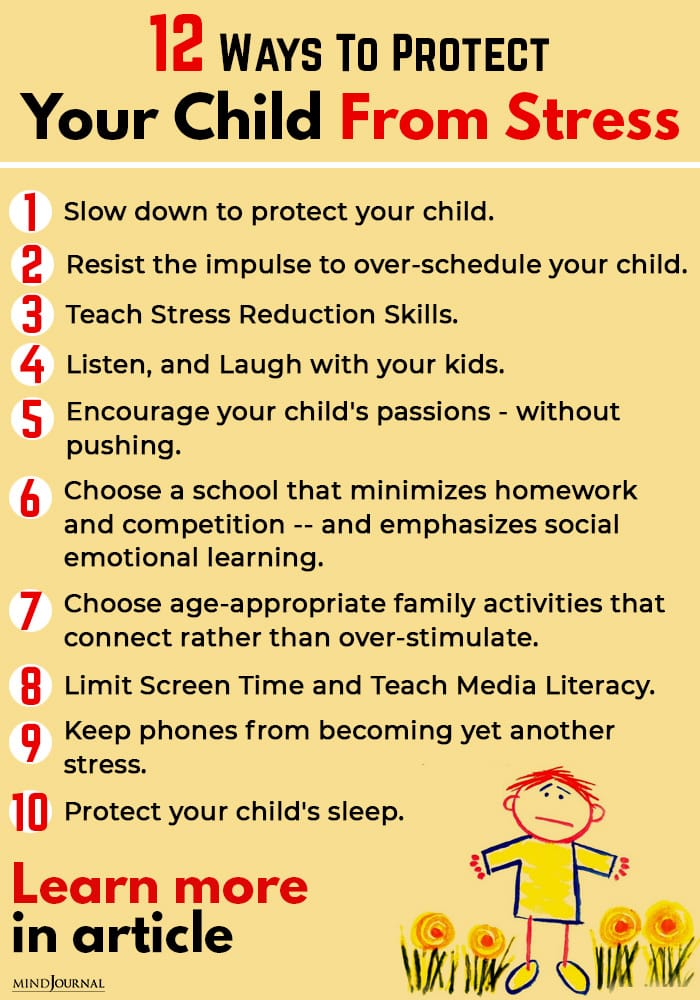
1. Slow down.
Humans are designed to love excitement and novelty, but stress kills. Literally. Stress erodes our patience, our health, and our ability to give our best to our kids. Stress makes us edgy and compromises our emotional control so we’re more likely to become annoyed or angry. Stress sabotages our immune systems and our energy levels.
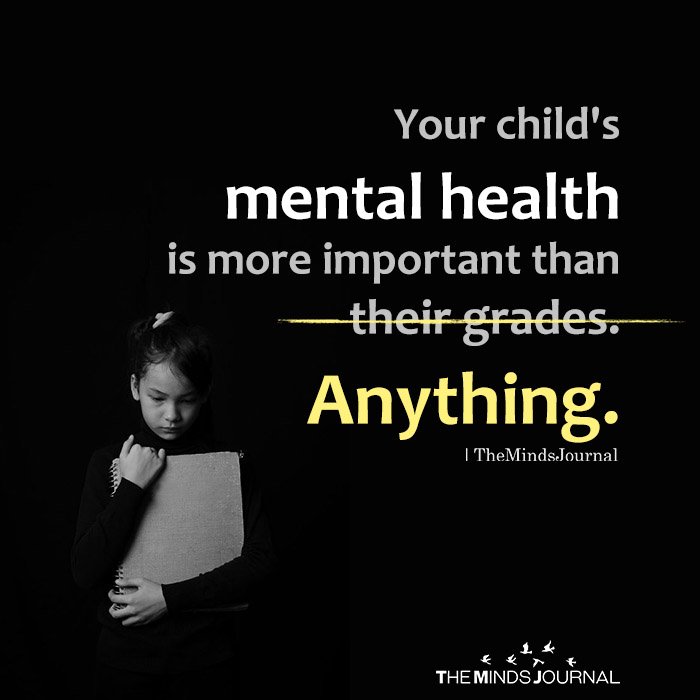
If we’re honest with ourselves, we can usually see how we make our lives more stressful than they need to be, simply by being unwilling to make the choice to pare back. If you want your child to behave better, start by slowing down and not rushing so much. Your child will gravitate toward your centered presence and want to follow your lead.
Read How Stressed Are You? Find Out With This Quiz
2. Resist the impulse to over-schedule your child.
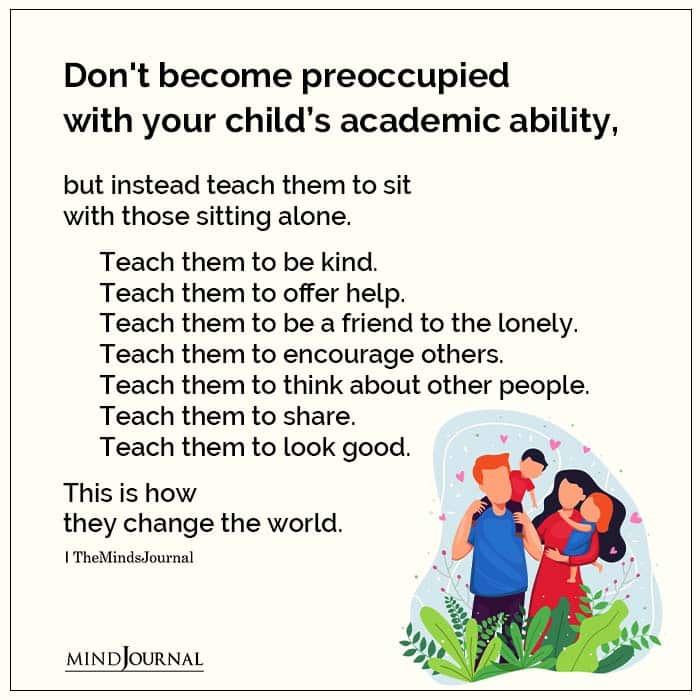
All kids need downtime, creative time, time to dream and do nothing and even get bored. Kids need to learn to like being with themselves without being entertained. They need quiet to tap into their own still voice.
They need to notice that when we’re still, unfinished emotional business often arises, swamps us, and then passes away, resolved, leaving us more free.
They need to learn to structure their own time without always looking at us or their screens. They need the chance to notice how good they feel when they get some downtime and don’t feel so rushed. They need to understand that life isn’t the activities that fill it, but something much more vast and mysterious.
3. Teach Stress Reduction Skills.
Teach your child that we all need a repertoire of healthy ways to reduce emotional tension, so we aren’t vulnerable to misusing unhealthy ones, like food and alcohol. For instance, physical activity is one of the best ways to reduce the stress hormones circulating in our bodies.
Make it a daily habit to get your child moving. Nature is also a proven antidote to stress; so be sure that some of that movement happens outdoors.
Another helpful technique for kids is to listen regularly to audio specifically designed to help them learn to regulate stress, such as guided visualization or a story that teaches deep breathing.
Read The Photos You Choose Will Tell How Stressed You Are: Quiz
4. Listen, and Laugh.
Like adults, kids need a chance just to talk, to offload the worries and tensions of the day. A regular tradition of them talking and you listening — without trying to solve anything; just with respect and empathy — will help your child or teen open up and talk to you when something stressful happens in their life, from bullying to major goofs on their part.
Kids also need plenty of laughter, which helps them heal the normal anxieties of daily life and actually transforms body chemistry. If you find you’re too caught up in moving your child through the routine to take time for listening and laughter, build some small connection rituals into your family life, such as snuggling each morning, roughhousing and laughter before bath time, and everyone sharing their favorite and worst parts of the day at dinner.
5. Encourage your child’s passions — without pushing.
Encouraging children to be creative agents ultimately gives them more joy in life than the passive consumption of culture created by others. But I’m not just referring to the arts; any talent, skill, or hobby that matters to your child will insulate him from peer pressure, drug use, and the extremes of commercialization.
Just don’t push your child to perform or to “win” with his passion, or you take a source of joy and transform it into another source of emotional tension. Stop pushing! Protect your child from emotional discomfort.
6. Choose a school that minimizes homework and competition — and emphasizes social-emotional learning.
Almost half of all kids in the US are stressed by school, according to American Psychological Association studies. That’s because most schools push children beyond their developmental level, forcing them to sit still and to learn by listening and memorizing instead of by exploring, doing, and discussing. Many schools also use shaming discipline techniques like red/yellow/green lights, which increase emotional tension in children who are struggling to control themselves.
Children learn best when the “whole child” is acknowledged and encouraged. That means a curriculum that includes social-emotional development will help your child develop both emotional intelligence and intellect, and reduce stress levels.
Homework is a big stressor for children who have been sitting in a classroom all day. If you can choose a school that minimizes homework, you’ll be freeing your child to have more downtime for play, self-initiated exploration, and pursuing her own passions. That not only reduces the child’s stress level; it’s ultimately better for learning.
Read When Does Each Zodiac Sign Gets Stressed Out: Know Your Trigger
7. Choose age-appropriate family activities that connect rather than over-stimulate.
Too often, we as parents forget what really nourishes our child’s soul. For instance, children need desperately to spend more time in nature, which calms their physiology and grounds them. Young children DON’T need movies, virtually all of which are inappropriate for them.
If every other second grader is talking about some new movie, you may well agree to take him, but that’s very different than making movies a routine part of life. Parents often take young kids to movies because the parent finds it easier than taking the child on an adventure, whether that be a hike, bike ride, or museum. Choose age-appropriate family activities to protect your child from the stresses of modern lives.

8. Limit Screen Time and Teach Media Literacy.
Research shows that all screen usage contributes to our stress levels. TV teaches children that the most important things in life are money, appearance, and fame, which increases their stress levels. Research shows that TV stifles creativity, lowers self-esteem (particularly in girls), and increases violence.
Talk with your kids on an ongoing basis about the media messages that they see. Does this ad make them want to buy that product? What else does it make them feel, and think? (Hint: You and your life are inadequate without this product, which will make you beautiful, popular, and talented.)
Research shows that even when we don’t think we’re influenced by advertising — and most people say they aren’t — we are very likely to act on the ad’s message. That’s scary, but what’s really scary is that corporations spend billions to target our kids, who are even easier prey than we are. Even when we don’t act on advertising messages, we unconsciously respond to the message that we aren’t good enough the way we are.
Children, whose brains function differently than adult brains, are more susceptible to those messages. Limit screen time to protect your child.
Read Kids Activities at Home: Ways To Keep Kids Busy Without Much Screen Time
But the child stress comes from more than advertising. Studies show that adults and children who watch TV news believe the world is a more dangerous place than it actually is. Seeing TV news increases stress levels, causes nightmares and makes kids more anxious. You might still choose to watch the news, but that doesn’t make it appropriate for children.
Kids under the age of ten are not ready to see in technicolor all the terrible things that happen in the world. Reading the newspaper together is fine, because it isn’t as visceral, and you can help with the interpretation, unlike the unmediated sensationalism of the news. Even middle schoolers need your help to be savvy media interpreters.
What about just playing computer games or Xbox? Games are designed to be addictive. They change brain development. Research shows that many children cannot handle iPad usage without meltdowns, difficulty transitioning, and the need for constant stimulation. If you’re struggling with screens with your child, check out Dr. Victoria Dunckley’s book Reset Your Child’s Brain.
9. Keep phones from becoming yet another tension.
Most adults admit that being at the mercy of the incoming texts on their phones increases their stress level, and research bears this out. If your child has his or her own phone, be sure that it gets parked in the charging station at the front door for most of the time that your child is home, including meals, homework, and after dinner.
Kids need explicit direction that phones are a convenience for THEM and that texts and calls don’t have to be answered immediately. Keep phones away to protect your child from the stresses of modern lives.
10. Protect sleep.
Many children and virtually all teens are chronically sleep-deprived, which reduces their ability to cope with the normal stresses of life. I’m sorry to be the bearer of bad tidings but:
If you have to wake your child in the morning, she’s not getting enough sleep.
Really. Start moving bedtime back by 15 minutes every night until you find the sweet spot where your child wakes up on her own, refreshed and cheerful. Protect your child from sleep deprivation.
11. Check your own attitude.

If you’re running around stressed out all the time, bemoaning how busy you are, what are you modeling for your child? That she’s not good enough unless she’s over-extended? Stress is not inevitable; it’s a choice.
Notice also what you’re modeling and discussing with your child about values, choices, and the meaning of life. Is life about working more to buy more things? Competing to be “the best”? Are you giving your teen the message that if she doesn’t get into the right college, her life is over? Does your child feel like she has to achieve to be worthy of your love, or is she more than enough, exactly as she is? (Contrary to popular opinion, kids are more self-motivated when they feel unconditionally loved.)
Finally, notice that your emotional tension has a huge impact on your child. When you get huffy, your child gets stressed. All of us will lose it if we get pushed to the edge. Our responsibility as grownups is to stay away from the edge.
12. Stay Connected.
Most of us take for granted that kids would rather be with other kids. But when children are asked, they invariably say they wish their parents wanted to spend more time with them. Yes, even preteens and teens like to know you’re there, available if they need you. Think of this as an insurance policy for your child. Your very presence helps him feel secure and melts away the stress. Stay connected to protect your child.
Finally, the most important factor in protecting your child or teen from stress may be the delight you take in him, and the closeness of your connection. If you’re too stressed to feel that delight, why not give yourself whatever support you need, to rediscover it?
Please share this article with anyone who you may think will find it valuable and helpful. Thank you very much! I greatly appreciate it!
Written by: Dr. Laura Markham Originally appeared on: Ahaparenting.com Republished with permission.
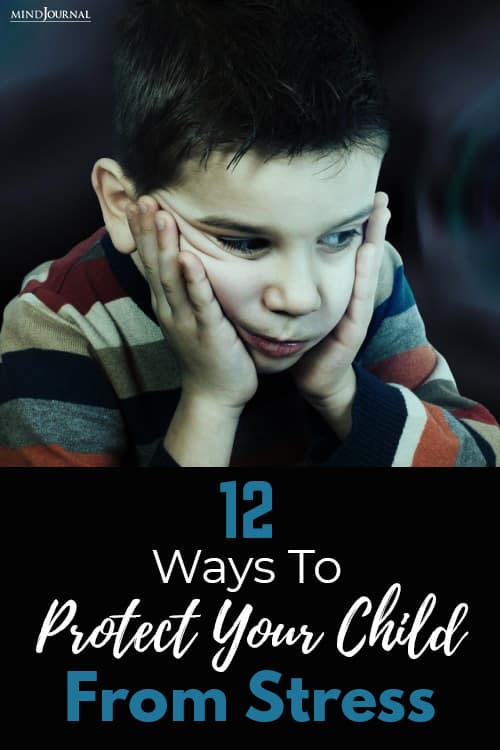
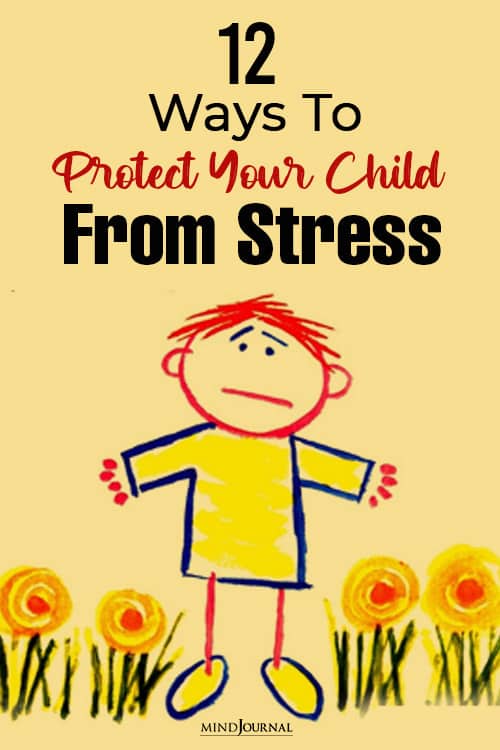
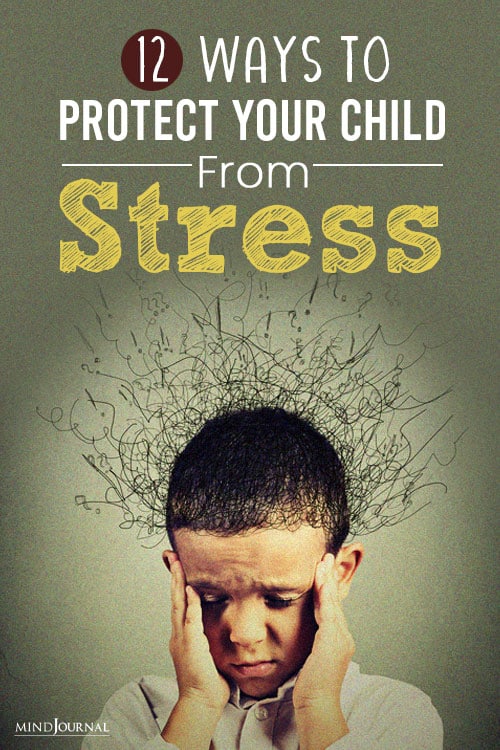


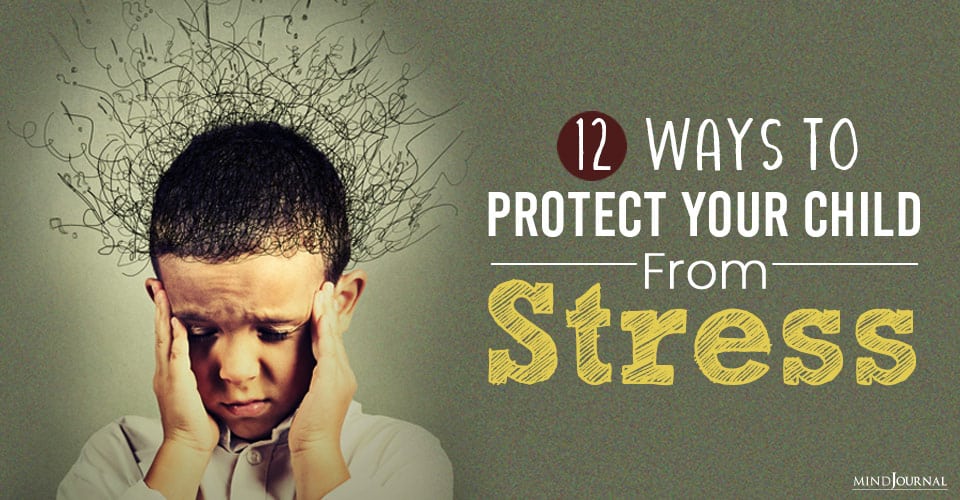







Leave a Reply